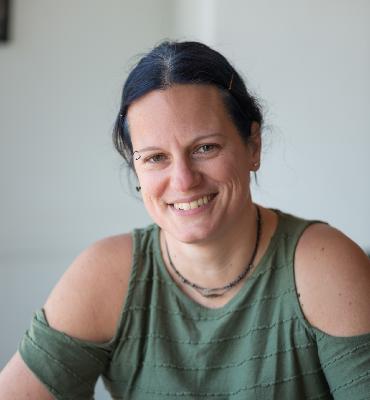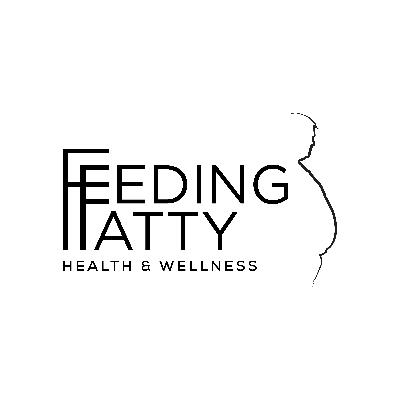Time To Rethink Fish Oil Capsules, The Truth About Omega 3 & 6 Processing
Description
Time To Rethink Fish Oil Capsules, The Truth About Omega 3 & 6 Processing with Delia McCabe
We had a great conversation with Delia about a lot of subjects, nutrition, fats, oils. One of the biggest pieces of information she gave us was the truth on fish oil. Fish oil has to be processed at very high temperatures, to be able to get the heavy metals, PCBs, and all the other toxins. Omega 6 and omega 3 oils that do not like light, heat and oxygen.
About Delia
Delia McCabe (PhD) shifted her research focus from clinical psychology to nutritional neuroscience upon discovering nutrition’s critical role in mental wellbeing while completing her Masters. Delia’s research into female stress has been published in a number of peer-reviewed journals, she is a regular featured expert in the media and her two internationally available books are available in four languages. Using her background in psychology, combined with evidence-based nutritional neuroscience and neurological perspectives, Delia supports behavior change and stress resiliency within corporates, and for individuals who want to optimize their brain health, via online courses, workshops and tailored events internationally. Find out more at www.lby.life
www.lby.life
Full Transcript Below
Time To Rethink Fish Oil Capsules, The Truth About Omega 3 & 6 Processing with Delia McCabe
SUMMARY KEYWORDS
brain, fats, people, eat, omega, fish oil, delia, oils, body, diet, functioning, habit, optimally, essential fats, feel, feeding, good, bit, alzheimer, day
SPEAKERS
Delia, Terry, Roy Barker
Roy Barker 00:05
Hello and welcome to another episode of feeding fatty. I'm Roy I'm Terry so we are the podcast chronicling our journey through wellness, which includes diet not eating not being on a diet as much as just our the food consumption portion as well as exercise mindset. It's a we're really looking at a holistic approach. And as we've gotten deeper into this, you know, we've added things to our repertoire, such as meditation and journaling, journaling and the other thing, the one that starts with the are Oh Reiki, right,
Terry 00:43
like the way he says it though?
Roy Barker 00:47
No, I can't. Anyway, he
Terry 00:48
says Reiki
Roy Barker 00:50
but in, you know, intermittently, we do have a guest professionals in the field to come on and that's what we have the day and Terry, I'm gonna let you introduce Delia.
Terry 01:00
Yes. Welcome to Delia McCabe. She is a PhD who shifted her research focus, from clinical psychology to nutritional neuroscience upon discovering nutritions critical role in mental well being while completing her master's. Delia's research into female stress has been published in a number of peer reviewed journals. She is a regular featured expert in the media and her two and her internationally available books are available in four languages. using her background in psychology, combined with evidence based new nutritional neuroscience and neurological perspectives. Delia supports behavior change and stress resiliency within corporates and for individuals who want to optimize their brain health via online courses, workshops and tailored events internationally. Delia, thank you so much for coming onto the show. We've been looking forward to this for a long time.
Delia 02:01
Thank you, Terry. And thank you, Roy. So have I really been looking forward to this,
Roy Barker 02:06
I'm gonna merge to the right here. Probably regret this because we could talk for hours about personal stuff. But this is a this is an interesting story. And this is one of the this is one of the great things that keeps us podcasting is because as a lot, as a lot of you know, we have, we have had some internet issues, and we really haven't taped much over the last six weeks, but right before the crash, you know, deal you came on and we talked to her and you know, getting things ready. And we even tried to come on and do the show, I think then it was just, we just didn't have the bandwidth to do that. And so anyway, we just like, Alright, we'll talk to you when we get this fixed. In the meantime, she sends us an email says, Hey, what do you know, my husband's gonna be in Austin. And coming up to Dallas for a side trip. Maybe we can get together. So anyway, we got together with him. We had an awesome time. Did a little countdown thing down in the stockyards. Got some good barbecue, walked around for a little bit and
Terry 03:05
made him get a long horn balloon. Yeah,
Roy Barker 03:07
we had to get like a balloon hat tied up. But anyway,
Terry 03:10
Miko is great.
Roy Barker 03:11
I think the point is that just you know, how lucky are we to be able to meet awesome guests from all around the world and who thought that you know, somebody that we talked to in Australia, you would have a husband in in Texas that we could go out and hang out with her.
Terry 03:28
That was so fun. Now we got to get her.
Roy Barker 03:30
Yeah. Now that's our next step. Anyway, I digress. But I thought, you know, that's such an awesome story to tell that, you know, we don't interject that enough. I don't think that you know, what great people that we meet from all around the world, it's just it's
Terry 03:45
them face to face? Well, yeah, sort of indirectly.
Delia 03:49
I think it's, it's really funny, because I've met you, you know, as you said, the internet issues and so we never got the podcast really done. But I haven't really met you in person. And they My husband is really making areas and wonderful and that's only because technology has allowed us to do this. And then of course, some limited travel now.
Roy Barker 04:09
Right? Exactly, exactly. Like, we want to digress. I know we could be off on that for like I said for hours. And anyway, we want to get to talking about nutrition and let y'all kind of had a roadmap already lined out. I'm not gonna jump in. I'll let Terry let y'all lead into that.
Terry 04:27
Okay, um, where would you like to start? You want to talk about improving Well, on your on lighter, brighter you your website? You have an informative blog. Should we touch a little bit on that improving cognitive function? You want to go there a little bit first?
Delia 04:50
I think let me just explain how I got into nutritional neuroscience. That would be good. I think a lot of people go off and x psychologist, you know, what were you doing? So It was interesting for me because I was innopolis is dating me because it was more than 25 years ago, I was busy finishing my Master's in psych. And I was working with a group of really smart school kids who were really doing poorly at school. And my experimental group, these are the kids who were smart and doing poorly. I was doing an intervention with them, because I was curious about the psychological variables that led to the underachievement. And I was looking at what I could do and say, to help these children be focused and concentrate and study and make their parents and teachers breathe a sigh of relief. And I had a questionnaire that I gave to both the experimental group and the control group who were the smart kids doing well. And I had a little bit of extra space on the questionnaire. And you know, fate is a very funny thing and destiny. Because in that space, I asked them a question. I said, What is your favorite food? And the answer was really astonishing. Because every single one of the children in the experimental group loved some form of junk food. And the children in my control group were the opposite. You know, they were interested in Sunday lunch, or you know, roast roast chicken, and maybe veggies and salads and so on. They didn't focus on junk food. And it's very seldom in research that you come across such a clear distinction. No. So I was really stuck, because I couldn't really write that up into my thesis, because it wasn't part of what I was looking at. I was looking at psychological variables, not, you know, nutritional physiological variable. So I wrote my thesis, I've made a short mention of that. And then thought, Well, I'm going to take a break now and examine this whole nutrition and the brain story, because I was just about to have my daughter. And I thought, I'll take a bit of a break and check it out. And as I say, destiny and fate are weird things. Because after I dived into the subject, which 25 years ago was not a big subject. And there were only a few researchers around the world examining this, I realized that I didn't want to be a talking therapist anymore. I didn't want to look at ways to get people to change their lives when their brain wasn't functioning optimally. Because the bottom line is really very clear that thinking and behavior change. And everything that we do between our ears, happens across this huge network that's made up of cells, and chemicals, and membranes and molecules, all of which rely on lifestyle choices, primarily nutrition, to keep it all going. So for now, I
























